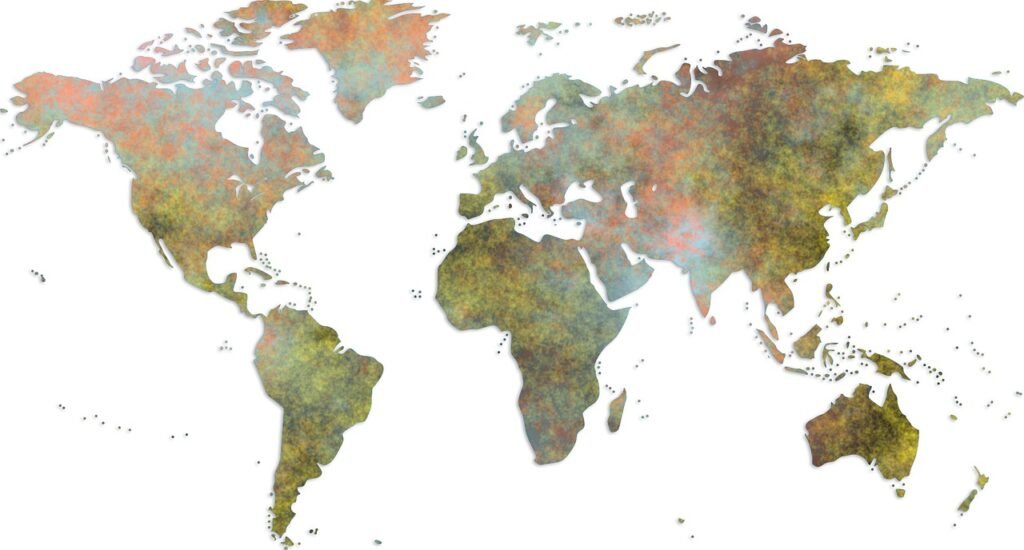What Are Emerging Markets?
What Are Emerging Markets?

Emerging markets is a term to describe countries with strong long-term potential. A developing market economy is one that is moving from a low-income, less-developed, often pre-industrial society to a modern industrial society with a better standard of living. The G7 emerging markets in 2022 include China, India, Brazil, Turkey, Russia, Mexico and Indonesia. Also keep an eye on Saudi Arabia (KSA), South Korea, South Africa, and Argentina.
- What are emerging market equity funds?
- Why should I invest in emerging market bonds?
- Can you list the different types of emerging market equity funds?
- List the risks associated with emerging market equity funds.
- Show the benefits of emerging market equity investing.
- Equity Growth Opportunities
- Emerging Markets are Retaking the Lead
- What Made Corporations Reopened Their Checkbook?
- Accelerating global growth
- Is inflation here to stay or soon on its way?
- Central and South American Politics Simmers
- India and Emerging Markets
- Caveats and Disclaimers
What are emerging market equity funds?
EM equity funds allow investors to access countries that undergo significant economic transitions. The terms generally refer to the two dozen countries that compose the MSCI EM and other indexes. Some of the countries in the MSCI markets include Brazil, China, Korea, Taiwan and Turkey.
Companies that are in emerging markets typically have some degree of exposure to the following:
-
- Lower literacy rates than average
-
- Limited diversification options in businesses and investment portfolios
-
- Minimal privatization of government-owned enterprises
-
- Higher inflation rates than developed countries
ETFs are split into many different categories, including diversified strategies, and regional funds focused on Latin America and China & India. Some even focus specifically on sub-regions like South America or specific regions on the continent.
Why should I invest in emerging market bonds?
Emerging market bonds are higher paying than investment-grade bonds because they have less risk. But they are more risky than an average high-yield corporate bond portfolio. Investors have had good returns on their investments in emerging markets over the past decade. New policies combined with rapid growth in manufacturing and natural resources sectors have helped position emerging markets as drivers of global economic growth. Emerging markets are better off than developed economies which have struggled since 2008 with lower economy rates and huge debt burdens. More than half of the world’s population lives in these countries, so when there is a problem people want to invest in them for safety reasons even if the return isn’t as good as it would be elsewhere. In emerging markets, the yield is higher on bonds.
Once a niche asset, EM funds are now evolving to include different areas of concentration and accommodate various investment styles. Regional funds and country-specific funds, or ETFs, are a good way to invest in specific markets around the world that fit your goals. You can also group EM funds based on their performance or growth and market capitalization. Most individual investors get EM exposure through more diversified portfolios because it minimizes risk while mitigating risk. It’s a matter of whether investors should be investing actively or indexed with mutual funds and ETFs.
List the risks associated with emerging market equity funds.
EM equity funds tend to be more volatile than those focusing on developed countries. These markets are generally smaller and often are more susceptible to political shifts, commodity price skew, and currency fluctuations among other risks. Many EM funds also carry currency risks — not just increasing or losing security prices but by their currency’s strength relative to the USD. Should investors choose mutual funds that hedge their currency risks rather than one that protects against exchange-based currency risks? If so, what can be discussed? For further information visit the links above for more information.
Show the benefits of emerging market equity investing.
Emerging market equity investing offers many possible advantages, including better global diversification. Opportunities in growth economies and undervalued securities are two other benefits. The possibility of greater returns from developing economies is a third benefit.
When you build your investment portfolio, there are two risks. One is that you will lose your money. The second is that the strength of the currency will change and it will not be worth as much as before. A hedge against currency risk means that if the market price of your home goes down because of a change in the value of your home, then you also get money from another place to make up for this change in price. But even with hedges, some risk still exists.
Savvy Investors are also reading…
Equity Growth Opportunities
In the second quarter, the MSCI jumped 4.05%. Healthcare, energy, and industries registered double figures followed by manufacturing and financial securities and material items. Value stocks in cyclical sectors have received some of the greatest benefits from global reopening. We believe the countries involved will begin to rebuild in earnest in the second half of 2021 and continue through 2022, a longer recovery than we would have suspected three months ago. Rising commodity prices in spite of the global economic recovery represent a negative impact on exporters.

Emerging Markets are Retaking the Lead
US Treasury bond volatility declined and the US dollar weakened allowing the blended hard and local currency emerging markets bond class to achieve 2% – 32% growth. The market has almost fully retraced its losses since the first quarter when it had been entangled with the positive effect of improved global growth expectations and the negative effect of rising US interest rates. We believe asset classes are poised to generate attractive returns, both on an absolute basis and relative to other fixed-income sectors and we see the pulldown as transitory and factors driving our constructive outlook remain intact. There is rarely an alignment of top-off factors, bottom-out fundamentals, and valuations.
What Made Corporations Reopened Their Checkbook?
For example, in the first half of 2018, the U.S. investment in inorganic waste dropped 7% year-on-year in anticipation of more domestic spending for technology investments. The European Union, the U.K., and the EUR area have agreed on a global target. Colombia, Argentina, and India are anticipating a 12% gain; Hungary, Indonesia, Brazil, Chile, and Greece range from 8% to 12% gain. The biggest markets for fixed capital at the time were Russia, South Africa, Korea, Mexico, Turkey, and the U.S. The investment sector dropped to 0.3% in the preceding year but was expected to reach 3.3% in 2019. The increased capital flows were particularly positive for emerging markets equities and also good for growth-sensitive assets.
According to the World Bank, emerging markets are countries that have “some characteristics of a developed market, but still have some catching-up to do.” In business terms, these countries often attract investors with high returns and strong economic growth rates while their national economies are less established.
Accelerating global growth
We expect the U.S. growth rate to be 6.4% in 2021, which is the highest it has been in a while. We also expect that emerging market growth will continue to grow at a higher rate, and we will revise our predictions for this year as things get better and countries meet their expectations for high growth rates on average prices of goods sold. The prices stay volatile because investments are made by people who worry about how the Federal Reserve is going to change Federal rates or what other countries might do with their money from trade deals with other countries.
Is inflation here to stay or soon on its way?
When the producer price goes up, that means that the price of what is being produced goes up. But when it gets to consumers, they may still be paying the same for things. The effect of inflation on emerging markets will depend on how much inflation there is in those countries. It can make stocks go up or down depending on how it impacts globalization. If you have a business in an industry with specialized sectors, then if inflation increases too much, your shares might also decrease in value due to “deviance valuations.” However, if inflation stays gradual and doesn’t go too high then this won’t happen because your company will be able to keep its fair share of profits.
You can’t improve what you don’t measure.
Free Verified Carbon Calculators.
Central and South American Politics Simmers
Latin America took the human and economic brunt of COVID-19. A single year after the Pandemic impacted the South American region in the second quarter, major political decisions were made with widespread protests over proposed tax increases breaking out in Colombia. These were followed by surprise elections, changing the landscape for Peru’s new president Mario Vazquez Rana who won on a platform to fight pandemics. There was also an election in Mexico where left-leaning Andrés Manuel López Obrador became mayor. Despite being one of the hardest hit nations, Brazil is now releasing positive news regarding flu vaccine keeping some semblance of peace throughout the Region. As the vaccine rollout accelerates in Germany we anticipate that Brazilians are expected to recover more efficiently.
India and Emerging Markets
Not long ago, Delhi became one of the fastest-growing economies of all time. India’s economy is in flux with its large number of jobs and growing prosperity. The India specialists will continue to target enterprises whose investments are at the center of the remarkable story. Increases in volatility in global financial markets following the COPVID-19 pandemic have left many investors wondering whether they must move their investment strategy towards emerging markets more often.
The economic growth in India and China has been of great concern to the US economy. This is because more than half of the emerging markets’ growth comes from high income, high spending, and economic development in Asia and across the world.
Caveats and Disclaimers
This article was written strictly for informational purposes. Any information about mutual funds, exchange-traded funds, or economic growth potential that might be misconstrued as advice for future results, is hereby null and void. We recommend that you review the advice of reputable portfolio managers in regard to the past performance of funds. They do incur management fees, but they will likely get you higher yields than if you DIY the market, and can find you the right financial instrument for your needs and assets. The demand for ESG-related investment around the world (The next wave) will continue to grow, so it is imperative to have a personal monetary policy for your overall portfolio. The content of this article is purely for informational purposes and not to be misconstrued with investment advice or opinion. Thank you for reading.

AUTHOR BIO
Research & Curation
Dean Emerick is a curator on sustainability issues with ESG The Report, an online resource for SMEs and Investment professionals focusing on ESG principles. Their primary goal is to help middle-market companies automate Impact Reporting with ESG Software. Leveraging the power of AI, machine learning, and AWS to transition to a sustainable business model. Serving clients in the United States, Canada, UK, Europe, and the global community. If you want to get started, don’t forget to Get the Checklist! ✅